Austrians get jumpy over ski bindings
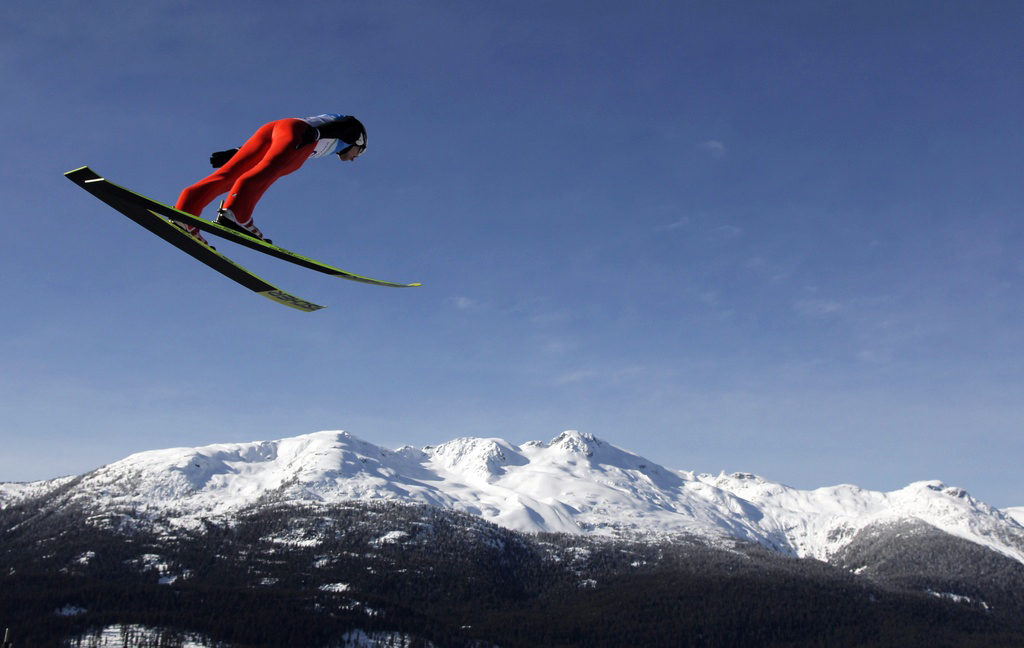
The already intense sporting rivalry between Austria and Switzerland has been turned up a notch with accusations of “unapproved” ski bindings.
The Austrian team have claimed Swiss gold medallist Simon Ammann is using improper bindings and threatened an official protest if he doesn’t change them for the next event on Saturday.
The Austrians told the International Ski Federation (FIS) on Thursday that Ammann had modified his bindings to improve his aerodynamics in a way that had not been approved, and that they were not safe.
“They give you an advantage, but it’s too dangerous,” said Austrian team spokesman Raimund Fabi. “The skier gets flatter in the air, the angle gets flatter. So you can lie better in the air, and therefore you go further.”
The Austrians are not challenging last Saturday’s normal hill result – in which Ammann beat Austrian favourite Gregor Schlierenzauer, who had to settle for bronze behind Poland’s Adam Malysz – but are threatening to lodge a protest after the first round of Saturday’s large hill event if Ammann uses the same gear.
Fabi said a protest couldn’t be filed before the end of the first round, but added that the Austrians might refrain from taking action if Ammann is far behind.
“Maybe a protest won’t be necessary,” he said. “It depends on the result – maybe an Austrian is already in the lead.”
“Jealous”
Gary Furrer, head of the Swiss team, dismissed the Austrians’ complaint and said Ammann had no intention of changing his gear.
“It’s clear to me that this protest has no chance,” Furrer said. “They’re jealous of Simon’s top performance.”
“[The Austrians] have been losing it for weeks,” said Martin Künzle, head trainer of the Swiss ski jumpers. “They’re just hurting their own athletes.”
On Friday Swiss tabloid Blick quoted FIS material tester Sepp Gratzer – an Austrian – as saying the bindings met the regulations “otherwise we would have banned them ages ago”.
Swiss Sport Minister Ueli Maurer also weighed in. “It’s part of the Olympics – losers always try to find reasons for not winning, and Simon Ammann’s bindings worked perfectly well in previous jumps without anyone getting worked up,” he said.
“For me, the whole thing is embarrassing more than anything else. When you lose, you lose – victory and defeat are both part of sport and people shouldn’t look for excuses. I hope on Saturday the Austrians focus their thoughts on jumping better.”
FIS spokesman Horst Nilgen said the federation’s technical committee would examine the bindings and determine whether they are legal.
Mind games
“It’s a modification of everything that is already out there,” explained Swiss jumper Andreas Küttel, who uses the same type of binding, adding that the difference is in the back part of the binding, which keeps the boot attached to the ski.
“Normal bindings have a strap. We have a stick made by ourselves,” he said. “We developed a very simple system and it works.”
Fabi said the Austrian team experimented with a similar set-up two years ago, but abandoned it because it was too dangerous.
“In critical situations, the skis get too stiff in the air and it could lead to accidents,” he said.
Küttel, however, said he thought the Austrians were simply playing mind games to prevent Ammann from beating them again.
“He’s jumping very well right now, and our neighbours are trying to find a way to reduce his performance. It’s all about the fact that Simon is Olympic champion.”
If he wins the large hill, Ammann will become the first ski jumper to win four individual gold medals. He swept both events in the 2002 Salt Lake City Games.
Rivalry
The legend of William Tell – in which the Swiss was forced by an Austrian oppressor to shoot an apple from his son’s head – illustrates how Switzerland and Austria have never been exactly perfect neighbours.
But for more than two decades the alpine rivalry has been a massive mismatch. Since 1988, Austria has won 28 Olympic alpine skiing medals, including nine golds. In that same time, Switzerland has won five medals, none gold.
But this year has witnessed the renaissance of men’s Swiss alpine skiing, and Monday’s downhill – won by Switzerland’s Dider Défago, with no Austrian to be seen on the podium – confirmed it.
For Austria, Switzerland’s success “sticks in their craw like you wouldn’t believe”, says Canadian skiing journalist Steven Threndyle.
Since 1936, Austrian men and women have won 30 Olympic alpine gold medals, almost a quarter of all golds awarded in the sport. The Swiss are number two on the all-time Olympic gold medal table, with 16.
Reader reaction
The tabloids were never going to miss such a golden opportunity to lob a snowball at their rivals.
“Psychological war against Simi,” shrieked Switzerland’s Blick on Friday, adding “the [Austrian] eagles are just a gaggle of disturbed hens”.
Readers of both countries overwhelming backed the Swiss and slated the Austrian ski authorities.
“If we had these bindings, we’d use them as well,” said one reader in Austria’s Die Presse.
“Using sharp practices like this to distract from your own country’s mediocre performance is an old trick,” said another. “It’s a shame there’s not more sportsmanship.”
In Austria’s best-selling paper, the populist Kronen Zeitung, a “neutral” reader from Liechtenstein said: “Until now I’d had the Austrians down as fair losers and arrogant winners (like the Germans), but I’m beginning to change my mind. On the day [Ammann] was the best. End of discussion. Nothing illegal, no wonder wax, no doping. It’s hard to take, isn’t it?“
Another reader added: “Losing is also an art, but apparently in Austria it’s a foreign word.”
“This is just embarrassing and damages the image of our decent, friendly jumpers,” said a third.
The final word goes to a skiing analyst writing in Blick: “Hey Austrians – our Simi would also have flown further than you wearing cross-country skis!”
Thomas Stephens, swissinfo.ch and agencies

In compliance with the JTI standards
More: SWI swissinfo.ch certified by the Journalism Trust Initiative

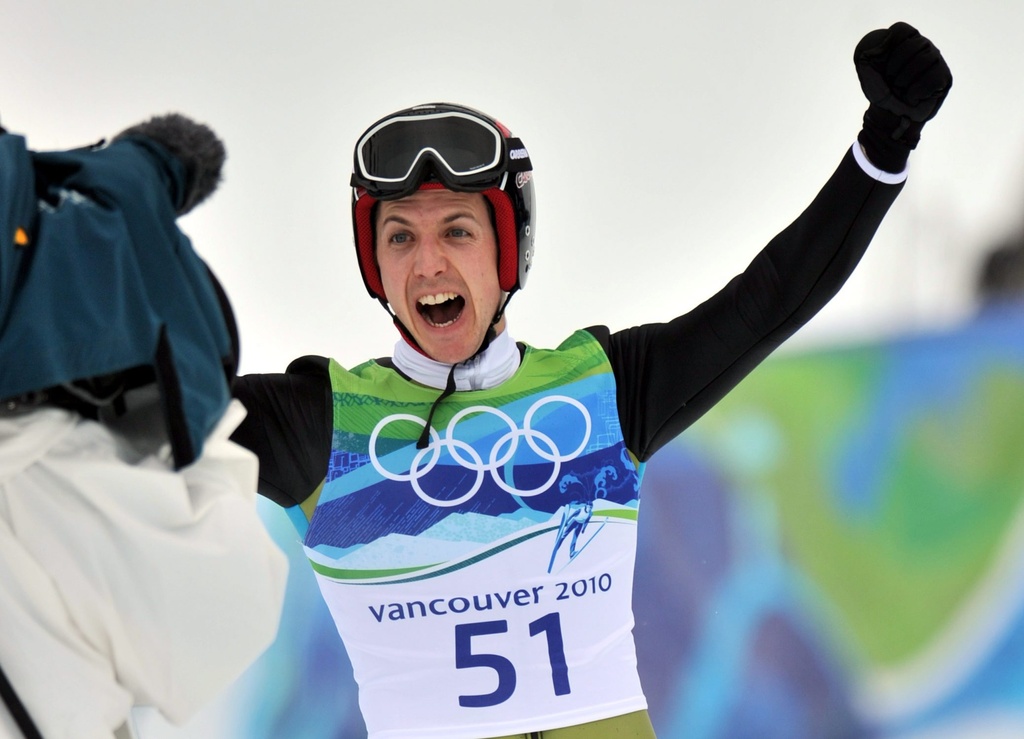
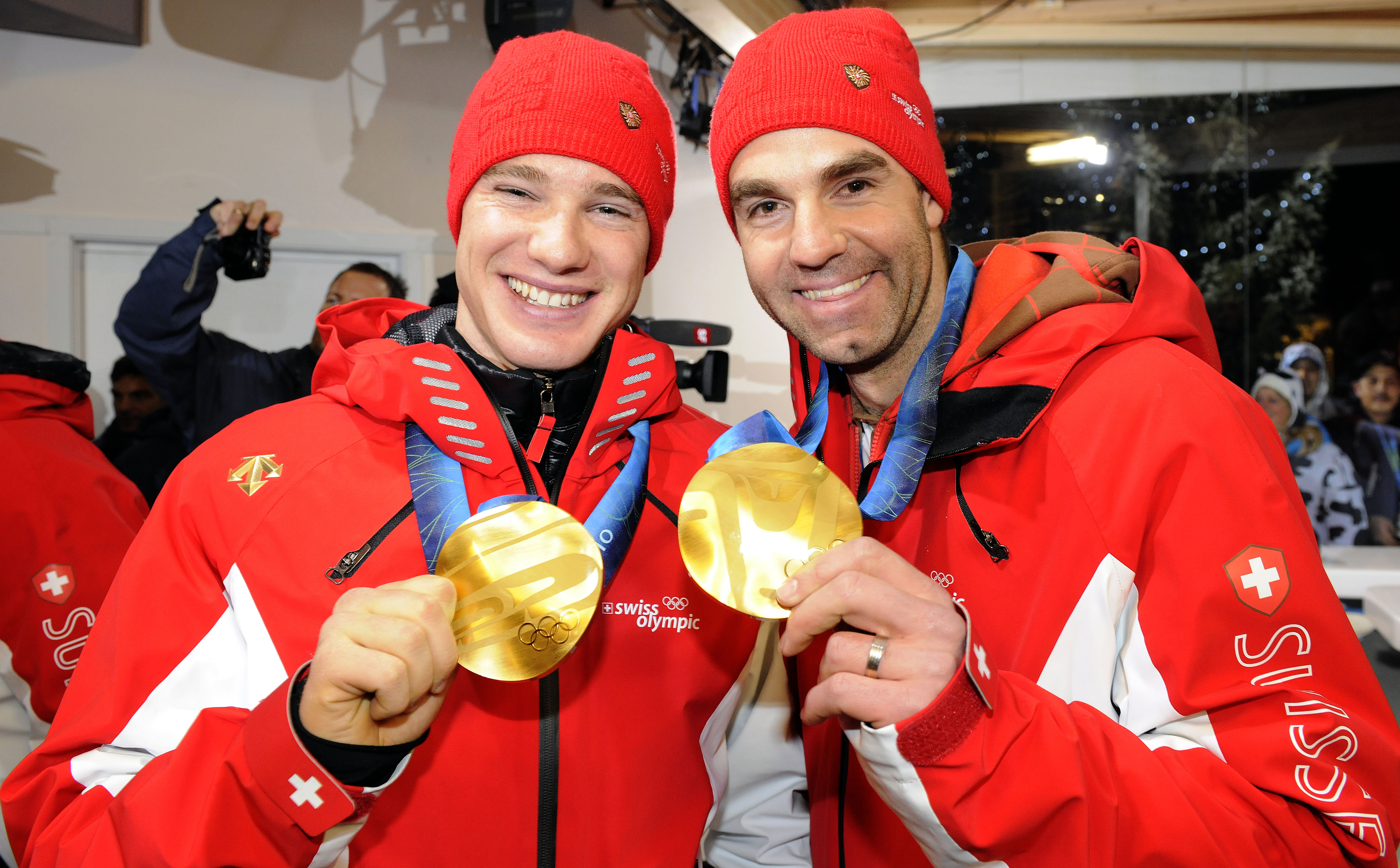

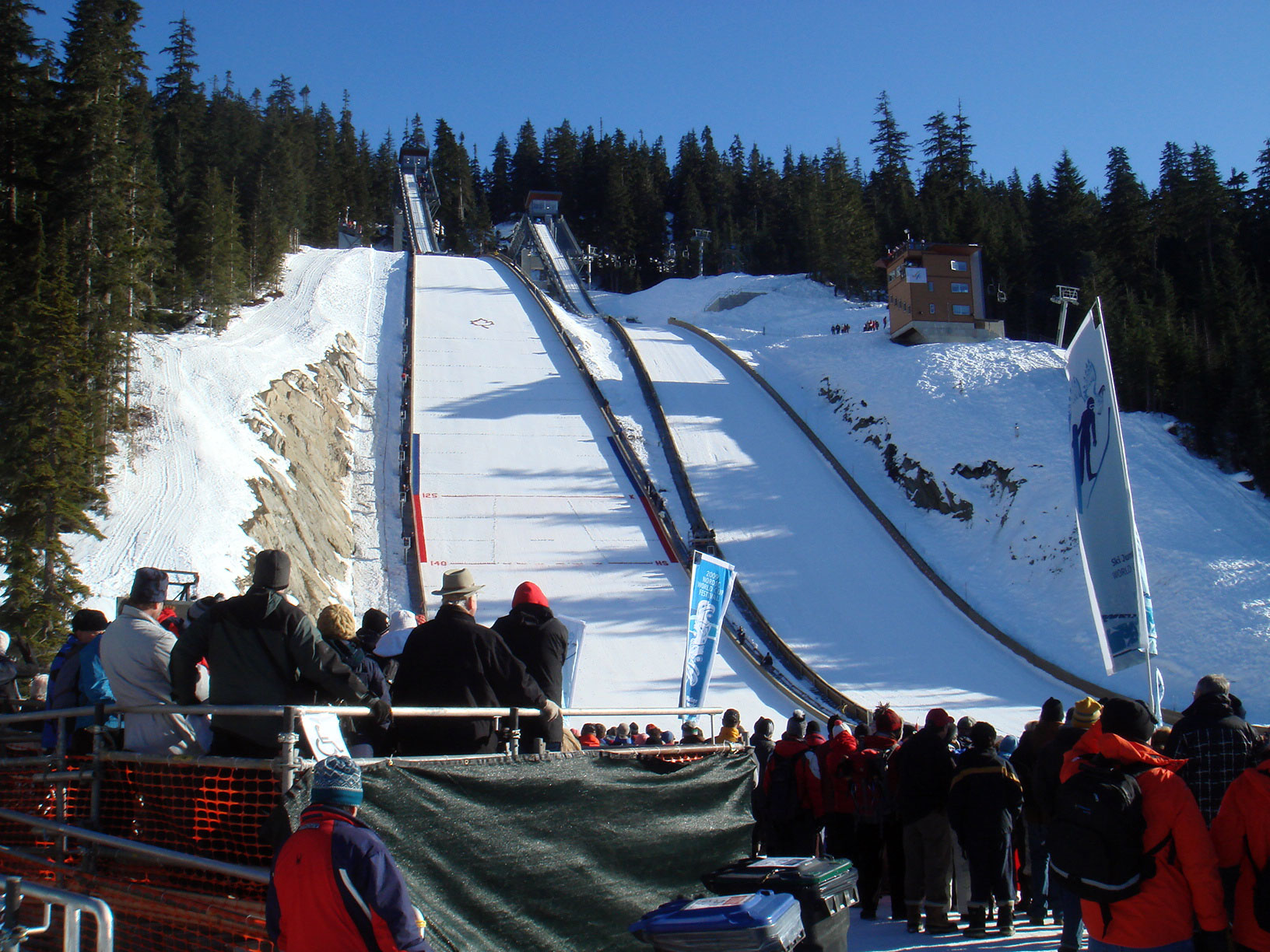
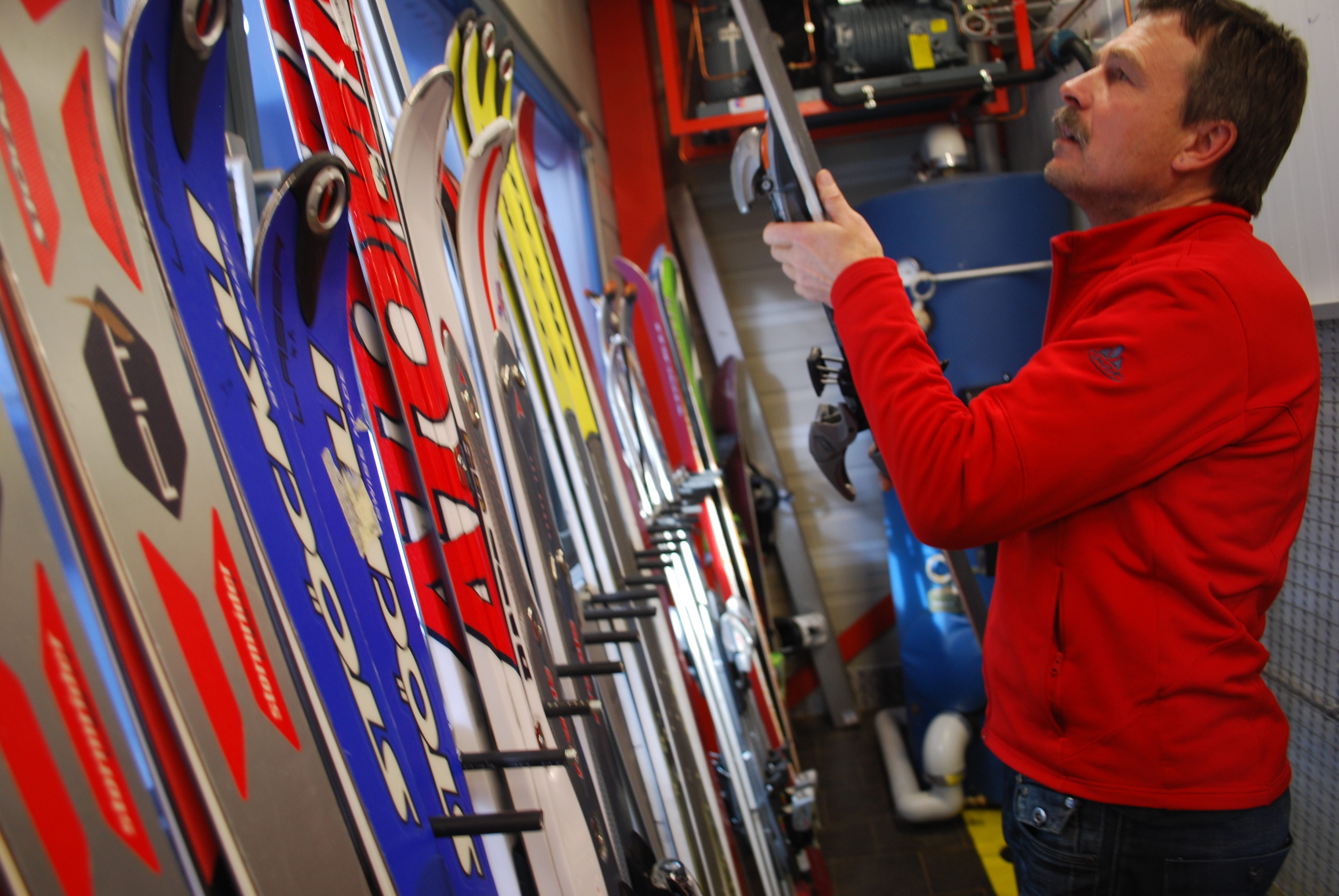

You can find an overview of ongoing debates with our journalists here. Please join us!
If you want to start a conversation about a topic raised in this article or want to report factual errors, email us at english@swissinfo.ch.